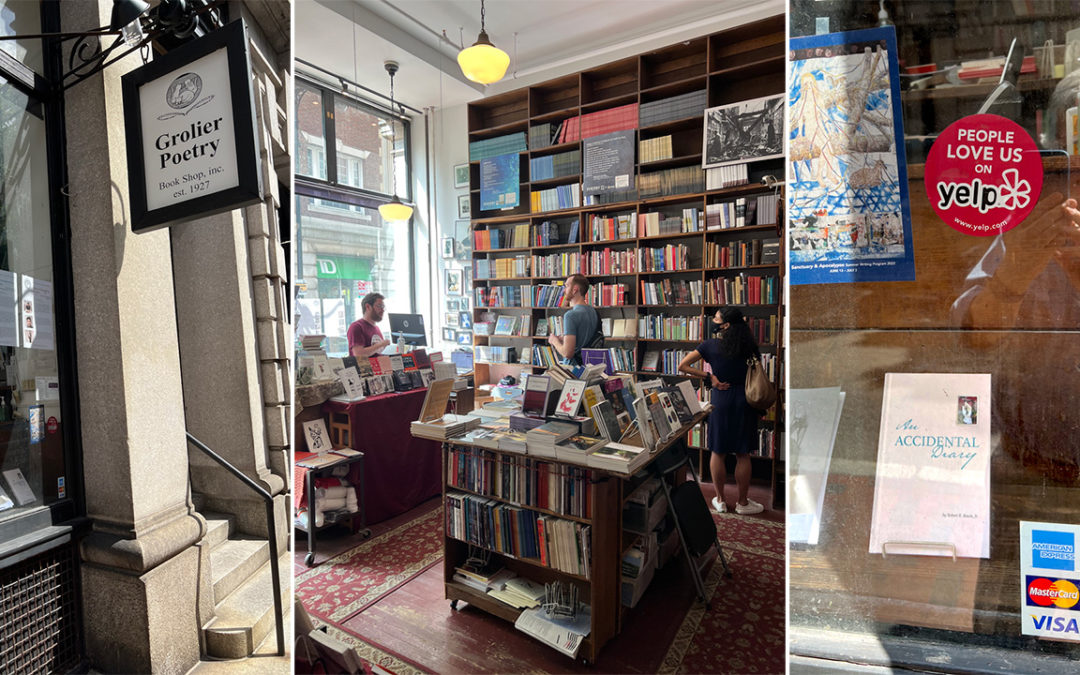
by Robert Bowie, Jr. | May 31, 2022 | Featured, Poetry
As a young boy, I lived in the sports pages and played on sandlot baseball diamonds after school. I dreamed about the big leagues. My dreams and my future were one.
As a young man, things became a little more complicated.
I couldn’t really hit a curve ball and I started noticing that the second question that people asked grown-ups after their name was “What do you do?”
Businessman? Doctor? Lawyer? With high school, a wider and more terrifying world was opening up.
I stumbled on T.S. Eliot and his poem, “The Love Song of J. Alfred Prufrock,” in which he wrote about the early 20th century. It is set in Boston’s Beacon Hill.
It seduced me from my fading childhood into my predestined future with its opening lines:
Let us go then, you and I,
When the evening is spread out against the sky
Like a patient etherized upon a table;
Ezra Pound pronounced this poem as “modern” — part of the dark reality of the new century and its new poetry. And so it was for me, standing there, in the Grolier Poetry Book Shop with J. Alfred Prufrock in my hand, a freshly minted teenage groupie at a one-room bookstore with towering bookcases.
Grolier was intimidating, but it held a world of new alternative heroes as I was losing my childhood and falling into the shadows of some job that would define me when asked “What do you do?”
How did this happen?
Posted on the front door of Grolier Poetry Book Shop was a blunt sign: “No Law. No History. No Economics. No Biology. No Physics. No Chemistry. Only Poetry!”
Gordon Cairnie, one of the founders, would sit on an old couch and hold court with published poets who were different in every way than the people I knew.
He waited for some unsuspecting student to walk in and ask if the store sold law books or the like.
Gordon would unload on the innocent walk-in and turn all the heads of the browsing readers when at the top of his voice he would answer, “No! But what difference does it make to you because you can’t even read the sign!”
Everyone would laugh in this freshly reconsecrated space and the young student was sure never to return again.
The point of entry to this new world was the “dare to be different” commitment to admit out loud that you were a poet and a believer, not a tourist.
I was way too shy.
This was a lot different than sandlot baseball, but within it there was still room to dream.
Over the years, the Grolier had become a focus of poetic activity in the Cambridge area, itself a magnet for American poets because of the influence of Harvard University. Poets such as John Ashbery, Robert Bly, Robert Creeley, Donald Hall, and Frank O’Hara were regulars at the store during their time as undergraduates at Harvard. The poet Conrad Aiken lived upstairs from the store in its early days.
Numerous other poets and writers are noted as “friends of the Grolier,” including Russell Banks, Frank Bidart, William Corbett, E. E. Cummings, T. S. Eliot, Lawrence Ferlinghetti, David Ferry, Allen Ginsberg, Denise Levertov, Marianne Moore, Charles Olson, Robert Pinsky, Adrienne Rich, Ruth Stone, James Tate and Franz Wright, to name just a few.
The bookstore claims to be the oldest continuous bookshop devoted solely to the sale of poetry and poetry criticism.
This September it will be 95 years old.
I was committed to keeping up with the rest, going to law school and succeeding — and I did. But I couldn’t forget the voices at Grolier and my prior fear of admitting out loud I wanted to be a poet.
When my travels would lead me to Boston, I would always go back to make sure it was still there. I would always buy a book or two to justify my visit and my love of lounging there for awhile.
Last Saturday, I was in Cambridge. I brought two copies of my first book of poems, An Accidental Diary, to give to friends I planned to see.
That morning in the hotel room, an idea hit me. I looked up the Grolier Poetry Bookstore and before I let better judgment kick in I called and asked for the proprietor, James Fraser. I told him I had two copies of a book, explaining one poem was runner up for the Robert Frost Foundation Poetry Award and another had been chosen for an upcoming anthology in Baltimore. I asked him if he would consider putting them up for sale on the shelves.
I told James I had been going into the bookstore for over 50 years and had studied with Professor William Alfred and Elizabeth Bishop whose books were on the shelves and pictures on the walls.
He invited me to drop by. I immediately walked my two books over and told him more of my story. I encouraged him to read “Summer Thunderstorms” and “The Facts of Life” to show the range of the work.
He leafed through the book as we continue to talk. There were a few people browsing as there always are and I took a moment to take a deep breath and just be surrounded by the place.
James looked up and smiled. He took both books out of my hand, looked up at me again, took one for the shelf and then put one book prominently in the front window.
Things this wonderful don’t really happen in real life but sometimes they do.
When I walked back to the hotel empty-handed looking down at the pavement with a stupid grin on my face, I felt like I had circled the bases on the sandlot!
I had always dreamed about the big leagues. But after a very long time my dreams and my future were again one.
(“An Accidental Diary” is also available on Amazon in paperback and Kindle.)
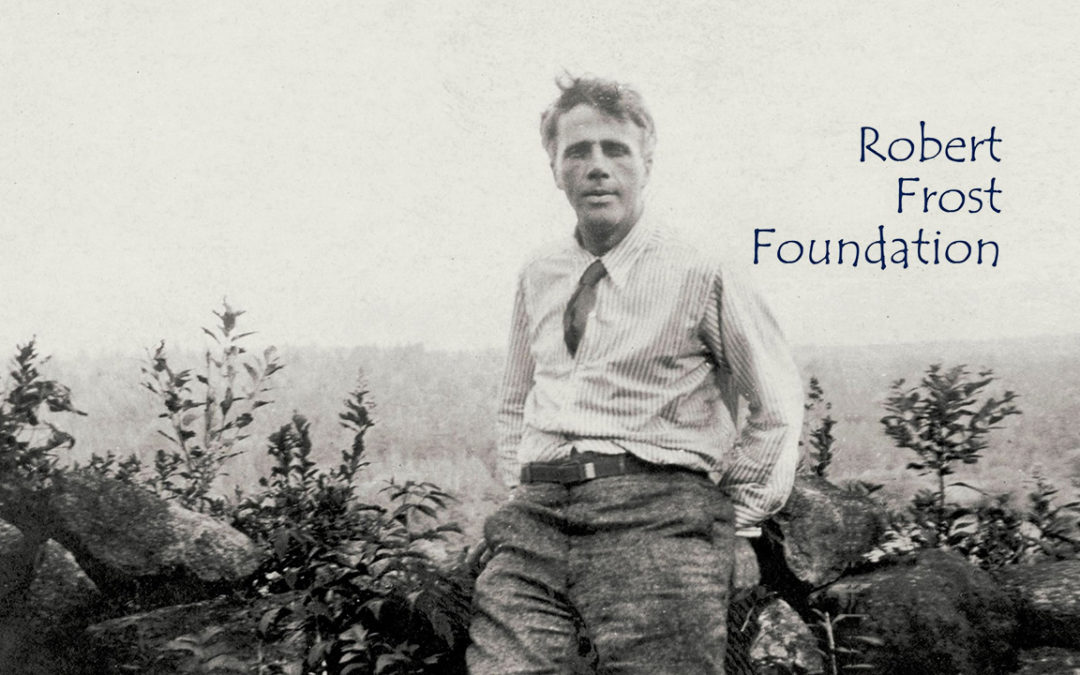
by Robert Bowie, Jr. | May 17, 2022 | Personal, Poetry
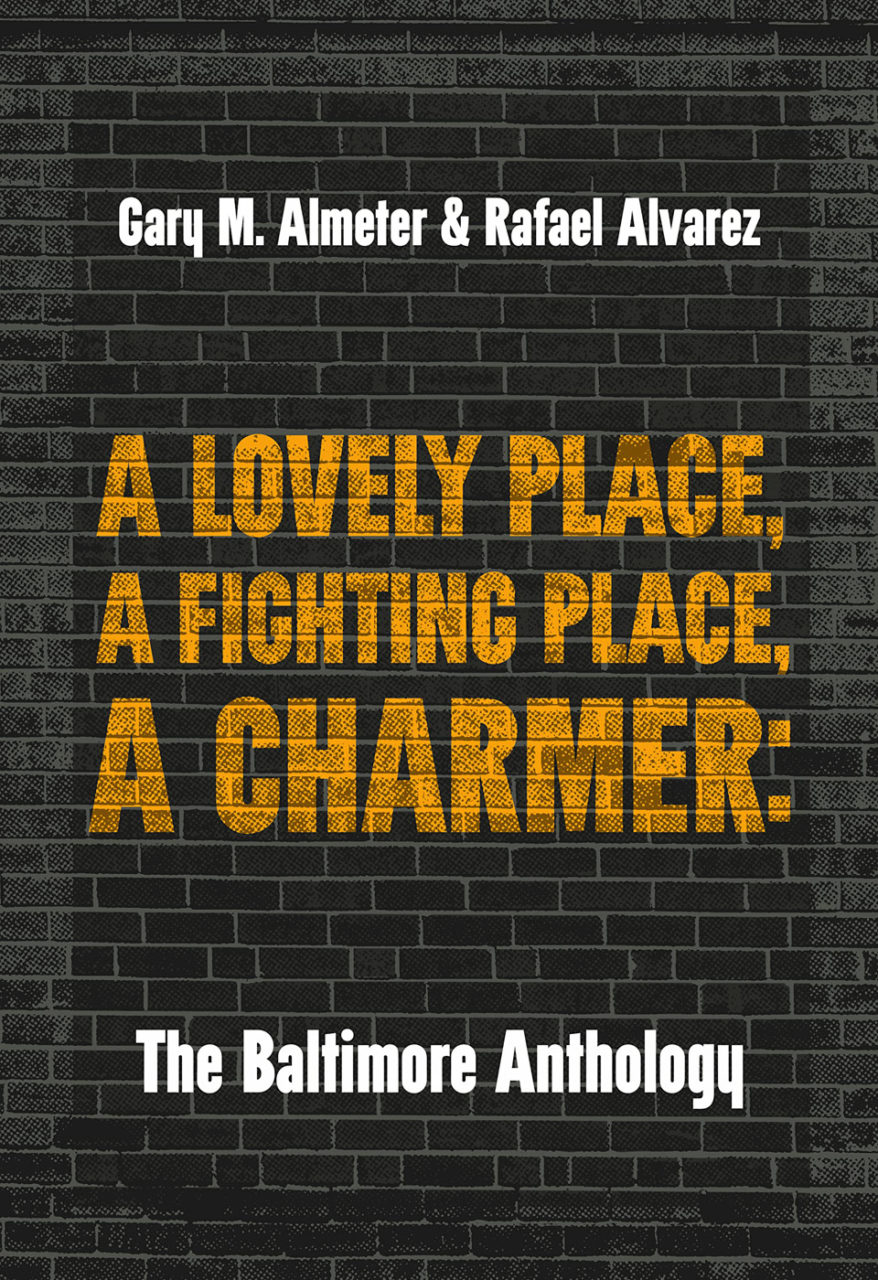
I started this blog several years ago in an effort to explore if there could a professional life in the arts after a full and satisfying first career.
Yesterday, I was notified that I had been chosen as a runner up for the Robert Frost Poetry Award for 2022 for my sonnet, “Summer Thunderstorms.” and last month, my sonnet, “City Snow,” was chosen to be included in the upcoming Belt City Anthology: A Lovely Place, A Fighting Place, A Charmer: The Baltimore Anthology.
Both entries are from my book, An Accidental Diary: A Sonnet a Week for a Year.
Help me celebrate and prove that there is the second life, after all!
Please buy a copy of these books and give them away, and ask that they be re-gifted by order of the author.
Here is the Robert Frost Foundation entry:
Summer Thunderstorms
As with the generations long since dead
The fire and brimstone of the status quo
Wakes him up from the safety of his bed
And lightening frames him in the window
And photographs him in its afterglow.
Tonight he feels his present and its past
As the summer storm also comes and goes.
Conclusions are foolish in a world so vast.
For at the edges of his world and heart
Far past the farthest boundary of his grasp
Where ideas cause worlds to come apart
He lives in this place that will not last.
He loves his life more than he can explain
And leaves the window open to hear the rain.
“Week 35” from An Accidental Diary
(Available now on Amazon in paperback and Kindle.)

by Robert Bowie, Jr. | Mar 8, 2022 | Poetry, Politics
The delicate interdependence that is nature also protects democracies. But it is difficult to recreate once eradicated.
The Heron
A tall shadow controls my autumn pond.
It moves on long legs and will stare and wait.
After the late March ice had come and gone
And the exchanged songs of the frogs that mate,
The lily pads rise through the clear water
To shelter the colonies of black tadpoles
That are born as eggs, like pupiled eyes, pure,
And, like the rest here, uncompromising souls.
The summer heat reveals the baby fish
Spawned by the survivors of last winter.
By August it is like my winter wish:
Blooming like some Eden, ready to enter.
The heron knows nothing of what I mean.
By noon it will have picked the pond all clean.
“Week 38” from An Accidental Diary
(Available now on Amazon in paperback and Kindle.)
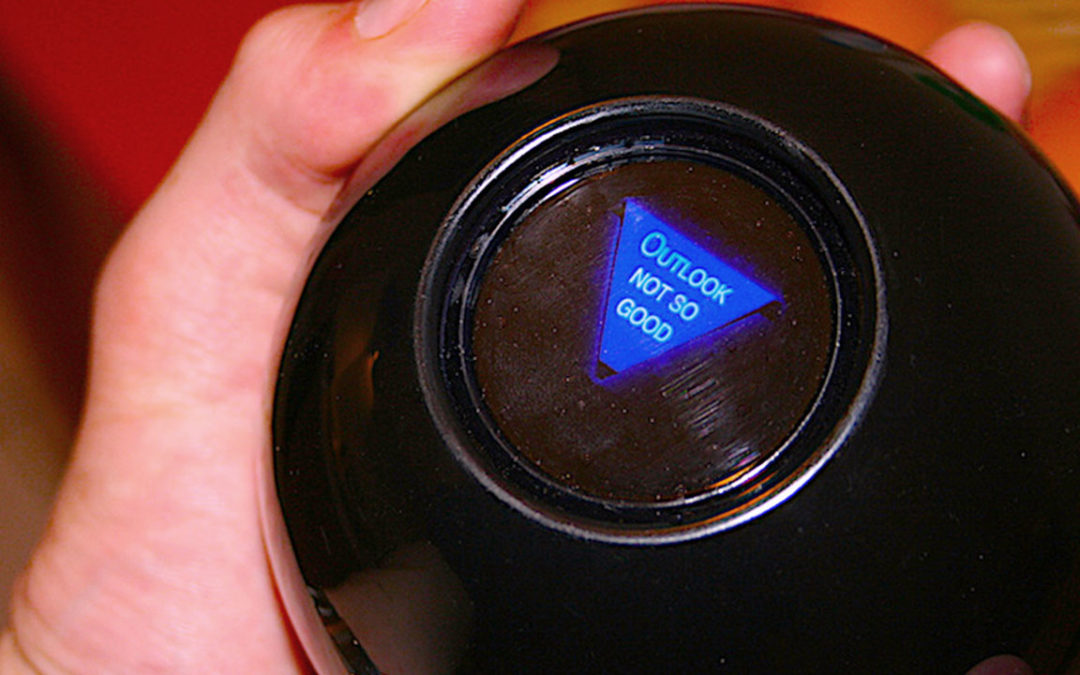
by Robert Bowie, Jr. | Feb 8, 2022 | Featured, Personal, Poetry
Sometimes my subconscious rises out of its darkness to address questions I would prefer to avoid as I try to weave my past into the history I prefer to believe.
I generally succeed in avoiding these intrusions by being more focused on some other project.
My subconscious tends to work like the “Magic 8 Ball” of my childhood. When confronted with a question and tipped upright, its answer will float up to its little glass window.
Almost 20 years ago, if I had asked it: “Will I be divorced in four years?” its answer could have been: “As I see it, yes” and I would have laughed at the absurdity of that answer and asked another question like: “But don’t I love my family?” And its answer could have been “Yes definitely.”
Almost 20 years ago, I wrote a sonnet a week for a year in my effort to master the sonnet form. For 52 consecutive weeks, I paid little attention to anything other than my desire to get the rhyme scheme right (abab/cdcd/efef/gg) in 14 lines of roughly iambic pentameter.
My mind was driving the school bus.
My subconscious went to the playground.
A few years ago, after I finally committed to being a professional writer, I went back to look at the sonnets and thought of them as individual weekly efforts. But then last year I reread all 52 from beginning to end at one sitting and discovered something very different.
The 50th sonnet, the third to the last one, stopped me in my tracks. It was a memory about how my first wife and I fell in love as we walked to work. It is a beautiful love poem but ends with odd and troubling lines:
…How could this love go wrong?
Our lives are drawn to a collective center.
The buildings are the highest when we enter.
When I wrote those lines, we had been married for over 20 years, but four years later our marriage would end — to a large extent because we had been drawn apart by our ever-increasing professional workloads.
We lost the very real love we had when we first married and for years after.
Why?
“The buildings are the highest when we enter.”
It answered the question: “How could this love go wrong?”
It was all in there, but I had been working on some other project instead of us.
I second-guessed my conclusion, but I immediately started from the beginning and reread all 52 chronologically again.
All of a sudden #50 was not just a single love poem that recognized the hidden demise of love and marriage. All of the sonnets had loosely related overlapping themes, but they were also independent observations all from the same universe.
They were little standalone vignettes. Little stories floating to the surface, from skinny-dipping advice to scuba diving with sharks to giving up smoking.
This was the subconscious playing in the playground.
What intrigued me most about this discovery was that while the objective mind had been obsessed about form and order and had been locked into that project, I was quite unknowingly having a different conversation that I was denying, with my unruly and more interesting subconscious.
“An Accidental Diary” is a very different kind of book because it is a story told in 52 perfect independent little chapters that are less than one page long. A reader is free to connect the dots or to read each sonnet separately as a world unto itself.
And hey! What a deal!
You get your money’s worth when you buy it. It is both the Magic 8 Ball and the questioner as two different books all rolled up into one.
You can buy it for Kindle or get the paperback within five days. Any purchase permits you to provide a review on Amazon if you are so inclined.
https://www.amazon.com/Accidental-Diary-sonnet-week-year/dp/B09NGXSVM5/
Will you enjoy this book? “It is certain.”
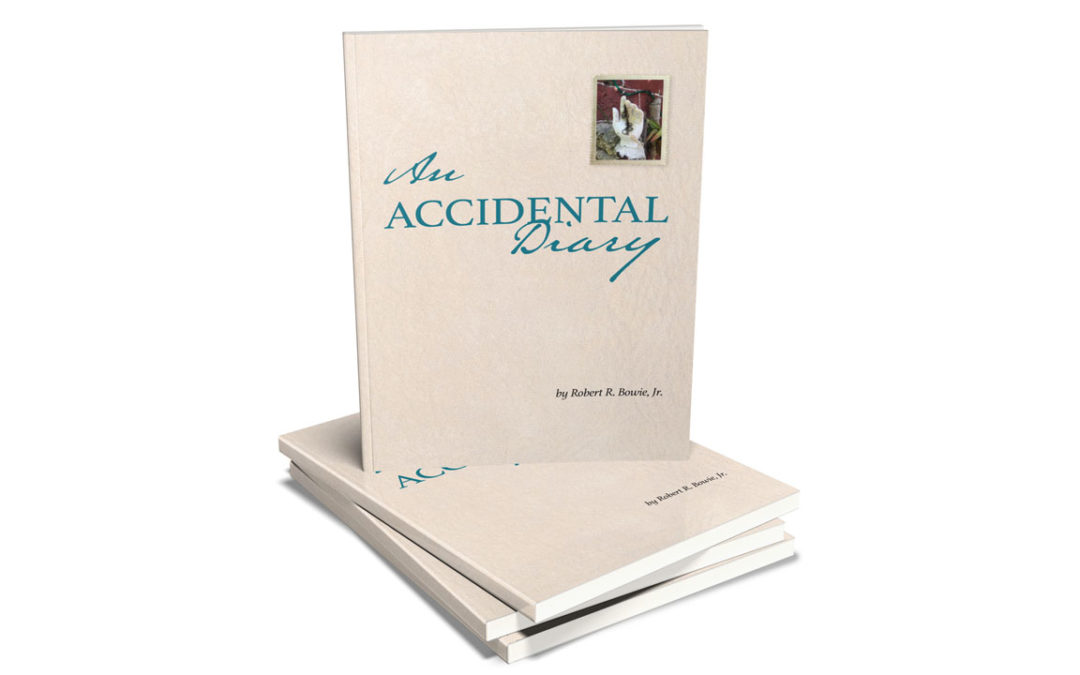
by Robert Bowie, Jr. | Dec 29, 2021 | Personal, Poetry
There are so many ways to see what’s different about the same thing.
The day after Christmas we got a light dusting of snow, but it was snow!
The same day I learned that my Amazon book, An Accidental Diary, was finally for sale in paperback and could be delivered by December 30th.
The hardback and Kindle have been on sale for two weeks but since Amazon prints the books they sell, the hardback wasn’t available for delivery until mid January. I couldn’t wait. I wanted to hold my book in my hands so I bought a copy.
It is amazing to learn how many different ways there are to see the same thing.
An Accidental Diary is a sonnet a week for a year, but the book wasn’t conceived of until almost 20 years later when I read each week’s entry sequentially and I discovered it really was a wild subconscious diary created over a year of transition.
It is really a game of hide and seek. It was what I had kept hidden from myself back then and what years later would happen: fond recollections and musings on loss, lust, love of family, my fear of dying alone, a sad divorce and, back then, even efforts to quit smoking.
It was drawn from a grab bag of everything in my life in order to meet a Sunday night deadline of a sonnet a week for a year. The book’s introduction defines the scope but the book does it best.
As I was waiting for my book delivery and thinking about what to write here today I looked out at the remaining snow and I wondered how this little collection of often humorous poems would introduce itself and I was amused at how the first sonnet does exactly that.
There are so many ways to see what’s different about the same thing:
City Snow
From a four o’clock sky the first snowflakes fall
To settle down on trafficked city streets.
Each snowflake falls separately, till all
Conspire to hide the city like a secret.
The last street lights go on, and the snow reflects
Upon the domiciliary landscape.
The more snow falls the less you really expect
The city to be what it’s supposed to be:
It becomes a beautiful blinking shape,
An image of slowing inactivity,
Slowing into snow drifts. It snows very late.
A pronouncement of peace subdues the city.
The drifting snow controls the city violence
With a voice made entirely of silence.
Here’s a link to get the book and give it a read if you are so inclined:
https://robertbowiejr.com/booklink/
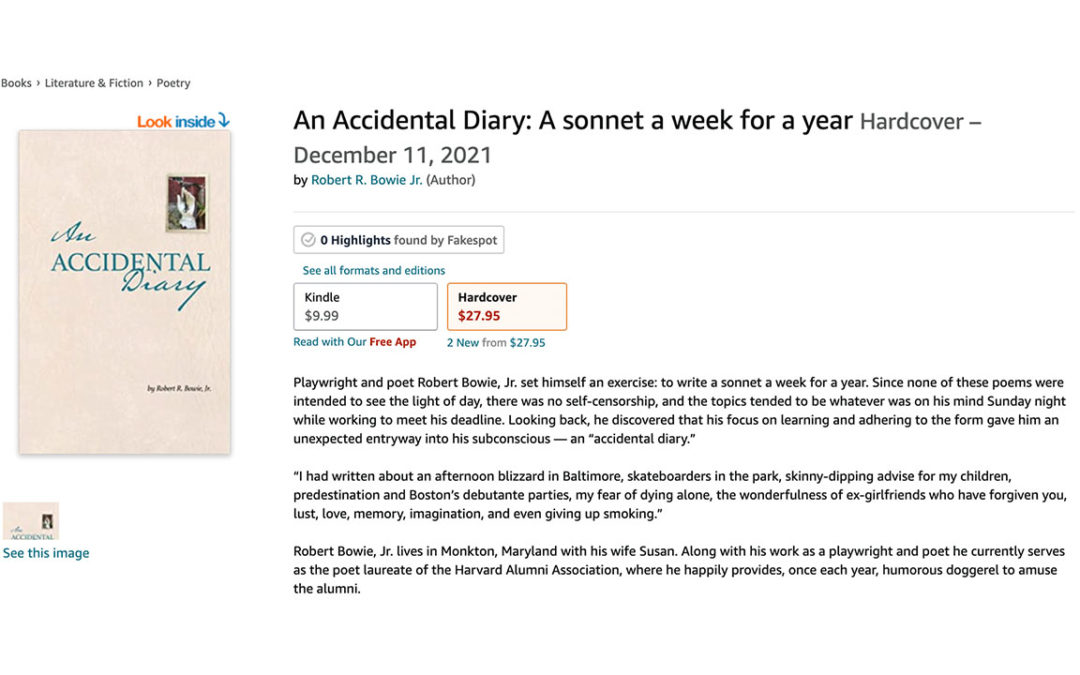
by Robert Bowie, Jr. | Dec 15, 2021 | Personal, Poetry
Almost a year ago I posted “Santa” as a single sonnet to celebrate the season and yesterday it became part of a book.
An Accidental Diary has been published!
Now Santa is 1/52th of “An Accidental Diary: A sonnet a week for a year.”
I am both surprised and extremely proud of my unusual book.
Yesterday, I got notice that the hardback and Kindle editions are now for sale on Amazon. The e-book version, I understand, can be read right away. The hardback is also available now, but will be delivered in January.
https://www.amazon.com/Accidental-Diary-sonnet-week-year/dp/B09NGXSVM5/
(If you’d like a personalized signed copy, reach out to me by email.)
As an old geezer I have no fear of repeating myself, so no matter what your religious beliefs may be, I offer you this my self mocking repeat, yet again to make you laugh and yet again to say thank you to each of you.
Santa
Like a massive multicolored parachute
His boxers have collapsed upon the floor
Slightly south of a wrinkled Santa suit
That was left just outside the bathroom door.
A bunch of imagined elves in repose,
Smokin’ cigarettes, feet on the table,
Hangin’ and laughin’ ’bout Rudolph’s nose
Are lovin’ life as only elves are able.
Another Christmas is, at long last, past
As the fat man shampoos in the shower
And thinks of golf and summer thoughts at last.
Who’s this metaphor for redemptive power?
An old fat guy driving a sled with gifts?
A father at midnight is what it is.






